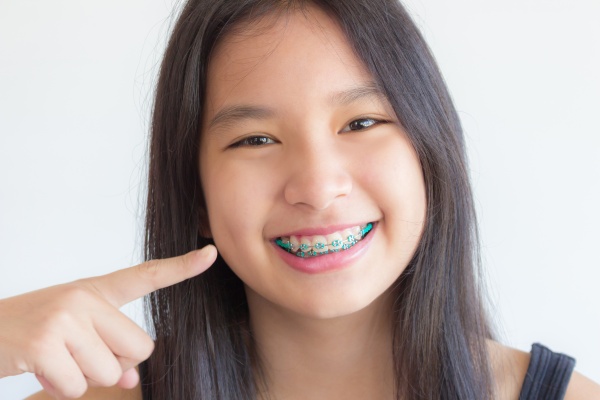Alternatives to Straightening Teeth With Traditional Braces

The last thing a patient wants to hear from the dentist is that braces are necessary to straighten crooked teeth. Most people think of metal squares that temporarily ruin the look of the teeth. Dental technology has progressed to the point that conventional braces are no longer necessary. Below, we explain a few alternatives to metal braces for straightening crooked teeth.
Alternatives to metal braces
Lingual braces
Lingual braces, also known as concealed braces, are similar to metal braces but they are not as visually distracting. Lingual braces’ brackets are connected behind the teeth. Patients with lingual braces can open wide to smile, talk or laugh, and no one will know they are wearing braces. Lingual braces cannot be seen by anyone, as they are concealed on the reverse side of the teeth. It takes a specialized dental mirror and the perfect vantage point to see lingual braces in the mouth.
Invisalign
Invisalign is revered by dentists, orthodontists and patients across the globe. These translucent plastic trays fit directly over the teeth. Invisalign trays are molded in a completely customized manner, allowing patients to progress from one tray to the next for timely teeth straightening. Invisalign cannot be seen by the naked eye unless the observer is within a few inches of the patient. This alternative to braces for straightening teeth is also widely favored because it is fully removable. Patients can remove Invisalign to floss, brush and eat. Invisalign’s removability also empowers patients to eat a wide range of foods without restriction.
Between 18 and 30 plastic aligners are customized to fit on the teeth and gradually straighten crooked teeth. Invisalign aligners must be removed every couple of weeks across treatment duration. The length of treatment depends on the severity of the crooked teeth.
Retainers
Although retainers cannot address all issues pertaining to crooked teeth, these custom-fit and fully removable dental devices close spaces between teeth. They can even shift a single tooth. Unlike traditional braces, retainers are concealed in the mouth. These metal or plastic devices are unobtrusive, comfortable and affordable.
Ceramic braces
Ceramic braces are similar to regular braces in most facets except aesthetics. Ceramic braces are the same shape and size as regular metal braces, yet the ceramic variety features clear or enamel-colored brackets. These brackets blend in quite nicely with the teeth. Some ceramic braces even feature tooth-colored wires to minimize visibility.
Cosmetic dentistry
Cosmetic dentistry has emerged as a viable alternative to traditional braces. Dental bonding and/or porcelain veneers are thin but incredibly hard shells comprised of porcelain. Veneers are permanently attached to the front portion of crooked, chipped, discolored, misaligned or improperly spaced teeth. Patients who opt for veneers find these shells durable and strong.
Dental bonding solves most spacing and shaping issues addressed by regular braces. Bonding is the application of resin material to conceal flaws and fill gaps between teeth. The bonding hardens, providing improved durability and stability.
Contact us to find out more about alternatives to braces
Patients looking for an alternative to braces should give us a call as soon as possible. Our dental team is here to help patients straighten teeth with options aside from traditional braces. Contact us today to schedule an appointment.
Request an appointment in our Visalia dentist office here: https://www.dentistofvisalia.com.
Related Posts
A dental inlay is one of several restorative options available to repair damaged teeth and preserve oral health. When decay, fractures, or wear compromise the strength or structure of a tooth, dentists consider the severity and location of the damage to determine the most appropriate treatment. Understanding the differences between a dental inlay, onlay, filling,…
Preventative dental care refers to all the ways you can maintain the health of your teeth and gums, which will ultimately help prevent more severe issues down the road. One great way to provide this type of care is through treatments, including scaling and root planing, periodontal therapy, and laser gum surgery. The following are…
Preventative dental care has long been the focus of dentists and patients alike. Taking proactive steps to protect your teeth and gums not only helps you prevent tooth decay and gum disease but can also decrease your risk of developing other illnesses such as heart disease, stroke, cancer, and diabetes. Here’s how oral health affects…
The most effective way to prevent tooth decay is with preventative dental care. Everyone wants to maintain a healthy white smile for a lifetime. Your smile is your first impression and a great way to show confidence. Keeping that smile can be very easy if you follow a few easy steps.Tooth decay causes gum disease,…
